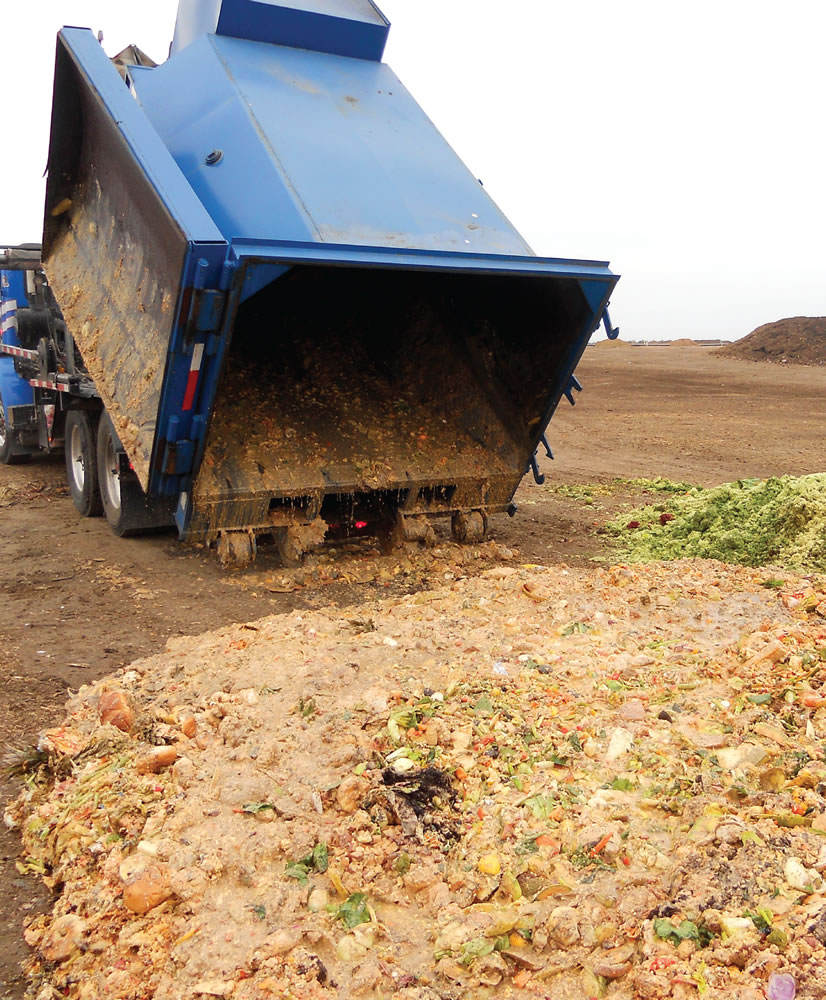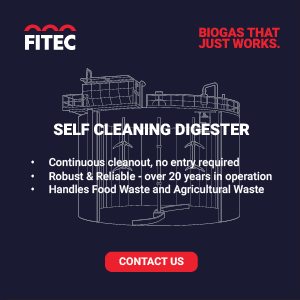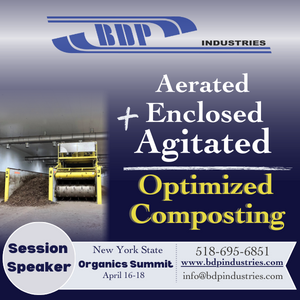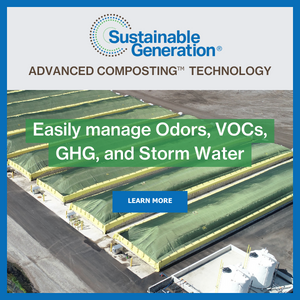The Town and Country Resort and Convention Center in San Diego joined the City’s Food Waste Composting Program in 2014. About 200 tons/year are currently diverted.
Ana Carvalho
BioCycle March/April 2016
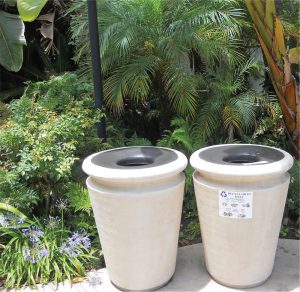
Paired recycling and trash containers have been deployed throughout the Town & Country Resort property making recycling visible and convenient. Photo by Ana Carvalho, City of San Diego
In 2014, the hotel revamped its recycling program and joined the City of San Diego’s (City) Commercial Food Waste Composting Program. At that time, the hotel was at 32 percent waste diversion, missing a variety of diversion opportunities. The hotel team worked with the City’s Environmental Specialist on first enhancing and implementing a comprehensive and convenient recycling program for hotel employees, guests and visitors. Once the recycling program was in place and in full compliance with California Assembly Bill 341 and the City’s Recycling Ordinance, the group started to work on logistics for food scraps diversion.
The Town & Country averages service of 2,500 meals/day (which can peak at 6,000 meals/day, depending on the season and events it is hosting), prepared in its four kitchens, and served at its three restaurants, room services, and special events. Factors taken into consideration by the City when determining food scraps collection logistics for hotels include generation volume, size of the kitchens, proximity to the loading dock, space for containers at the loading dock, and in the storage area, connection for compactors, exposure to sun, proximity to where guests will be passing by, cost-effectiveness and potential for vectors (e.g., birds, wildlife).
Some hotels collect directly from the kitchen in 32-gallon (gal) carts that are serviced by the hauler. Others may collect in smaller buckets and empty them into a 32-gal cart or directly into a dumpster. The Town & Country, due to its food scraps volume, and the storage area being very visible and close to guest traffic (located between the parking lot and the conference rooms), opted to use a smaller, 15-cubic yard compactor that is hauled to the City’s Miramar Greenery composting facility once a week at a minimum (once/week hauling is required by the City’s program).
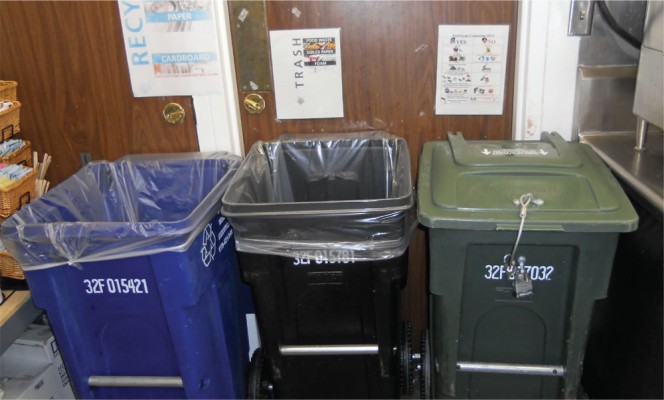
Color-coded 32-gallon containers for trash, recycling and food waste are set up in the kitchen prep and washing areas. Photo by Ana Carvalho, City of San Diego
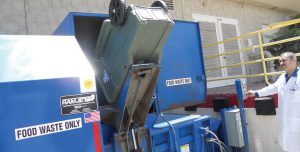
Carts are tipped, using an automatic lift, into a 15 cubic yard compactor that is hauled once a week to the City of San Diego’s Miramar Greenery composting facility. Photos by Ana Carvalho, City of San Diego
Minimizing Contamination
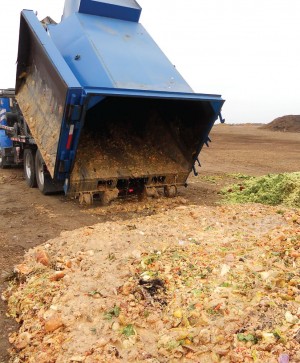
A load of Town and Country Resort and Convention Center‘s food waste being delivered for composting at the Miramar Greenery. Photo by Ana Carvalho, City of San Diego
As part of the City’s composting program, the Town & Country completed a probationary period where its food scraps loads had to be inspected at the Greenery by hotel staff and the City’s Environmental Specialist. This probationary period allows City and hotel staff to identify contamination issues and their origin, and work with specific staff groups in order to eliminate any problems.
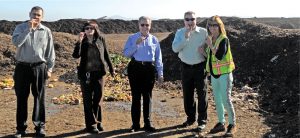
Resort and city staff celebrate — with chocolate — a successful inspection of the first food waste load (no contamination) after joining the City’s program. From left to right: Executive Steward Francisco Ochoa, Manager of Janitorial Services Paula Teixeira, Director of Engineering David Homa, Food and Beverage Manager Bengt Samuelsson, and City’s Environmental Specialist Ana Carvalho.
Ana Carvalho is an Environmental Specialist with the City of San Diego (CA) Environmental Services Department.


